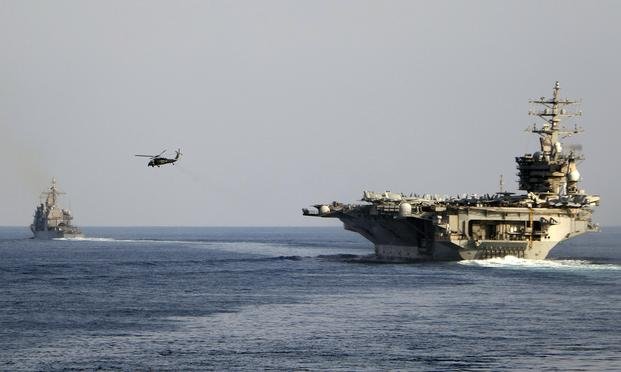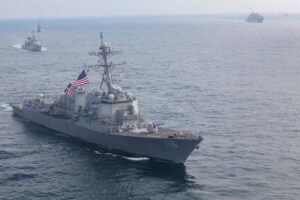The rising tensions between Israel and Iran have sparked apprehensions about potential disruptions in the Strait of Hormuz, a critical passageway for global oil transit. Following the recent U.S. military action against Iranian sites, discussions have intensified concerning Iran’s possible retaliatory measures to obstruct this vital oil route.
Strategically nestled between Oman and Iran, the Strait of Hormuz could become a focal point of conflict. Iran, with its arsenal of fast-attack boats, naval mines, and missiles, possesses the capability to disrupt navigation through the strait temporarily. The Iranian naval base at Bandar Abbas and its extensive Persian Gulf shoreline present logistical advantages for such actions, potentially supported by Yemen’s Houthi rebels in the region.
An Energy Corridor at Risk
Connecting the Persian Gulf with the Gulf of Oman and the Arabian Sea, the Strait of Hormuz is pivotal for global energy supply. Despite its narrow breadth of 33 kilometers (21 miles) at the slimmest point, it accommodates the largest oil tankers worldwide. The strait facilitates the transport of oil from key producers like Saudi Arabia, the UAE, and Iraq, as well as liquefied natural gas from Qatar.
Alternative routes for this oil are impractical, as existing pipelines, such as Saudi Arabia’s East-West pipeline, lack adequate capacity. The U.S. Energy Information Administration emphasizes the lack of alternative exit means for most volumes passing through the strait.
Economic Implications of Closure
Should Iran block the strait, oil prices could escalate to unprecedented levels, potentially reaching $120-$130 per barrel, as per Homayoun Falakshahi of Kpler. This could trigger a temporary inflationary impact on the global economy, primarily affecting Asian nations, which receive 84% of the strait’s oil shipments. China, a major recipient, holds substantial oil reserves that could mitigate immediate impacts, despite relying heavily on Gulf oil.
In contrast, the U.S. imports minimal oil from the Persian Gulf, due to a diversification of its oil sources, reducing vulnerability to such disruptions.
Challenges for Iran in Blocking the Strait
Iran faces significant deterrents in closing the Strait of Hormuz. Besides hindering its own oil exports, such an action would strain relations with China, its primary oil customer, and antagonize its Arab neighbors. Moreover, it would violate Omani waters, potentially alienating a diplomatic ally in the region.
Potential U.S. Intervention
Any closure of the strait is expected to be short-lived, as analysts anticipate a likely intervention by the U.S. Navy to restore passage. Historical precedents, like the 1980s’ protection of Kuwaiti tankers, suggest rapid military response to ensure the strait remains navigable. This intervention would likely receive broad international support, including from European and possibly Chinese interests, suggesting Iran’s naval capabilities may be swiftly neutralized.











